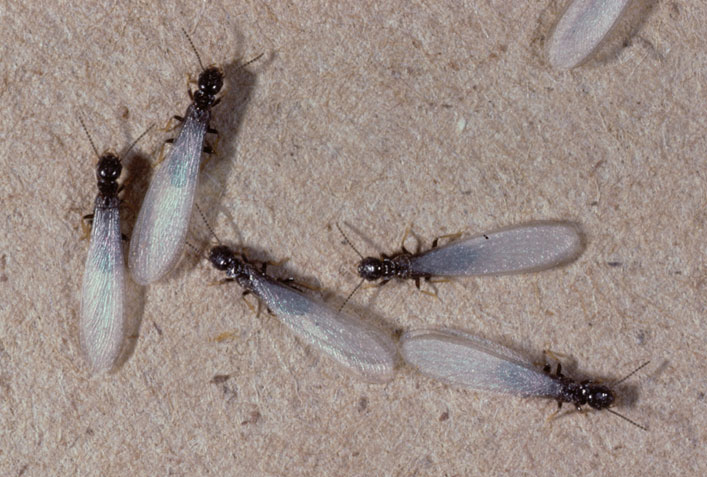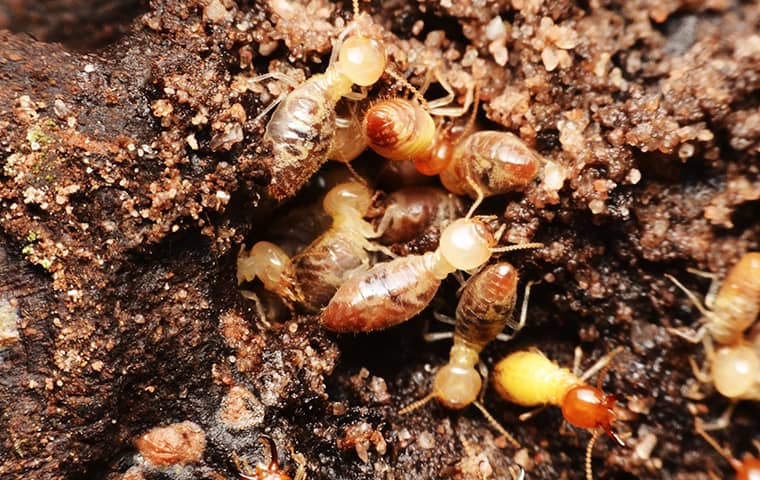Top Ant Control Services: Trusted Solutions for Your Home or Company
Top Ant Control Services: Trusted Solutions for Your Home or Company
Blog Article
Ecological Influence of Insect Control: Harmonizing Performance With Sustainability
The environmental effect of bug control is a crucial issue that requires a delicate equilibrium in between attaining effectiveness in managing bugs and guaranteeing sustainability of our communities. From the use of dangerous chemicals that permeate into our soil and water to the unplanned consequences on non-target varieties, the repercussions of traditional parasite control methods are far-reaching.
Damaging Chemicals in Insect Control
The usage of harmful chemicals in parasite control presents considerable ecological and health risks that require mindful factor to consider and reduction techniques. Pesticides, pesticides, and herbicides are typically made use of to get rid of pests, yet their widespread application can lead to unexpected effects. These chemicals can contaminate soil, water resources, and the air, affecting not just the targeted insects but likewise beneficial bugs, wild animals, and human beings.

To attend to these risks, integrated insect management (IPM) strategies are being advertised as an extra sustainable option. IPM involves a mix of techniques such as biological control, environment control, and the targeted use of chemicals as a last hope (ant control cornelius nc). By adopting an alternative method to pest control, we can minimize the environmental and wellness effects related to hazardous chemicals while effectively taking care of pest populations
Influence On Non-Target Species
Taking into consideration the unplanned repercussions of insect control methods, the influence on non-target types is a vital element that requires comprehensive assessment. While bug control actions intend to target certain parasites, various other microorganisms in the ecosystem may be unintentionally influenced. Non-target species, including valuable insects, birds, mammals, and also plants, can suffer indirect or direct injury from pesticide applications or biological control approaches.
Insecticides designed to battle a certain insect pest might damage pollinators like bees or all-natural killers such as ladybugs. Biological control agents, if not species-specific, can position dangers to unintentional targets, interrupting the ecological balance.
To alleviate the effect on non-target species, integrated bug monitoring (IPM) strategies that stress a holistic technique to pest control are advised. These methods prioritize the usage of eco friendly methods, lessening injury to advantageous organisms while properly managing pest populations. Conducting complete threat analyses and keeping track of the outcomes of parasite control initiatives are crucial actions in securing non-target species and advertising general community health and wellness.
Soil and Water Contamination
Unintended ecological repercussions of insect control methods expand past influencing non-target types, with significant effects for soil and water contamination. Pesticides, herbicides, and chemical plant foods utilized in pest control can seep into the dirt and pollute groundwater, posing a hazard to both marine and earthbound ecological communities. Dirt contamination can interrupt the balance of microbes crucial for vitamins and mineral biking and plant growth, causing reduced soil fertility and productivity. In addition, these chemicals can continue the environment for extensive periods, building up in the soil and possibly entering the food chain.
Water contamination is another crucial issue connected with insect control techniques. To minimize dirt and water contamination from bug control activities, integrated pest management methods that prioritize sustainability and minimize chemical inputs are crucial.
Air Air Pollution From Chemical Use
Exposure to air-borne pesticides during farming applications poses a considerable issue for air pollution control measures. In addition, pesticide drift, where pesticides are lugged by the wind to unplanned areas, can lead to the contamination of close-by ecosystems and water bodies.

Strategies for Lasting Bug Control
In the realm of agricultural practices, implementing lasting pest control methods is extremely important for maintaining eco-friendly balance and safeguarding plant yields. Sustainable bug control emphasizes making use of eco-friendly approaches to take care of pest populations effectively while reducing damage to non-target organisms and environments. Integrated Bug Monitoring (IPM) is an extensively adopted technique that incorporates organic, ant control gastonia nc cultural, physical, and chemical control techniques to achieve long-term pest management solutions.
One trick approach in lasting bug control is advertising biodiversity within agroecosystems. By improving natural enemies of pests, such as parasitoids and killers, farmers can lower the demand for artificial chemicals. Plant turning and diversity are additionally reliable strategies to interfere with pest life process and create less positive conditions for insects to flourish. Furthermore, making use of pest-resistant plant varieties and employing techniques like catch chopping can help in reducing insect stress without counting heavily on chemical treatments. Inevitably, by incorporating these lasting parasite control approaches, farmers can achieve a balance in between pest monitoring effectiveness and environmental stewardship.
Verdict
In conclusion, the ecological effect of insect control methods must be thoroughly taken into consideration to stabilize efficiency with sustainability. Hazardous chemicals used in pest control can bring about soil and water contamination, air pollution, and damage non-target types - ant control services. It is vital to execute sustainable bug control strategies to lessen these adverse effects on the environment and promote a healthier ecological community for future generations
By adopting a holistic method to pest control, we can decrease the ecological and wellness impacts associated with damaging chemicals while successfully taking care of pest populaces.

To minimize the air pollution caused by chemical use, it is necessary to embrace integrated parasite management approaches that prioritize the usage of non-chemical pest control approaches, such as crop turning, all-natural predators, and immune plant varieties. Lasting parasite control highlights the usage of environmentally friendly approaches to manage bug populations successfully while minimizing harm to non-target microorganisms and ecosystems. Integrated Insect Monitoring (IPM) is a widely adopted technique that incorporates biological, cultural, physical, and chemical control techniques to achieve long-lasting bug monitoring services.
Report this page